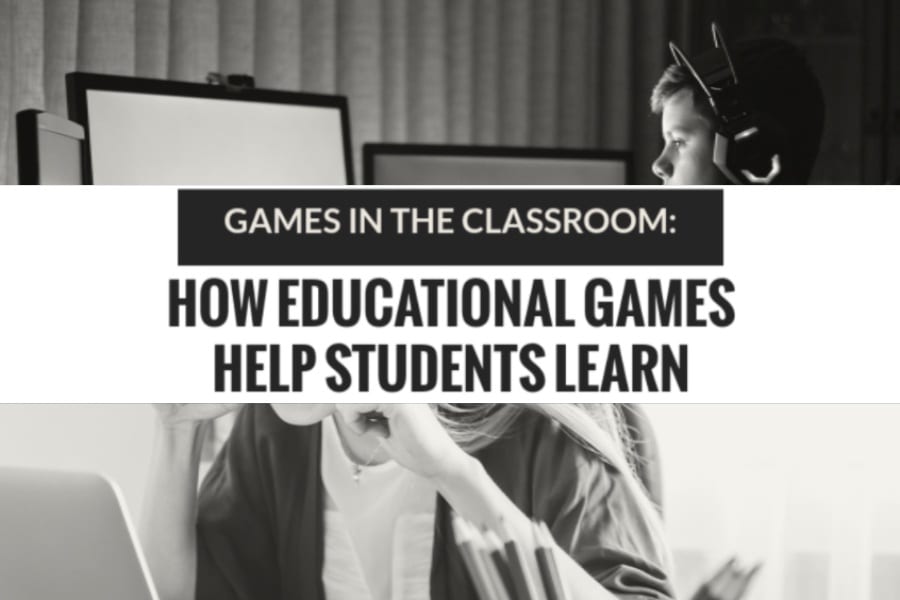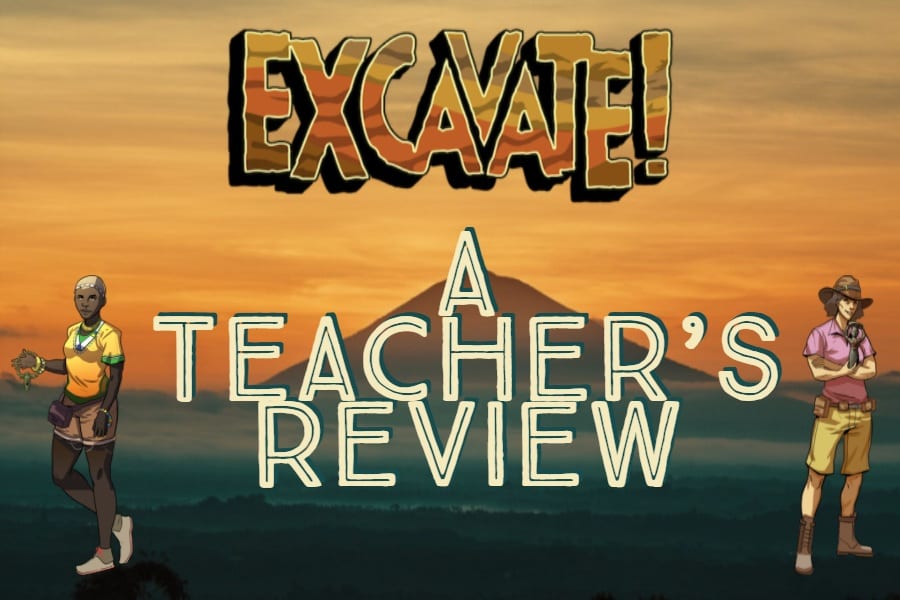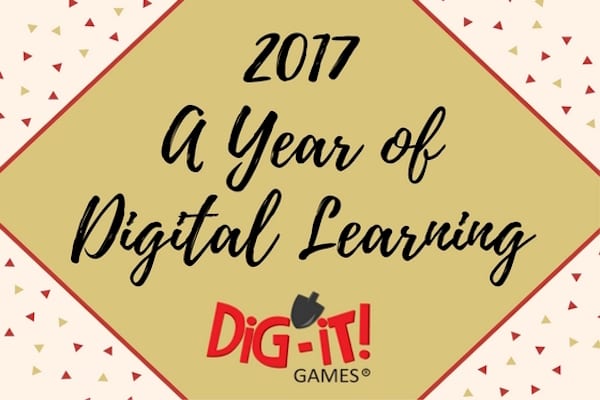Game-Based Learning in the Classroom: What’s the Point?
Game-Based Learning in the Classroom
We think game-based learning pushes students to get more invested in learning. By utilizing games, teachers motivate students to try harder through competition and interactivity. However, the tools understandably intimidate many teachers new to using technology in the classroom. On this post, discover how game-based learning works in the classroom and how it benefits students. Also, find sources to discover more about the subject.
What is Game-Based Learning?
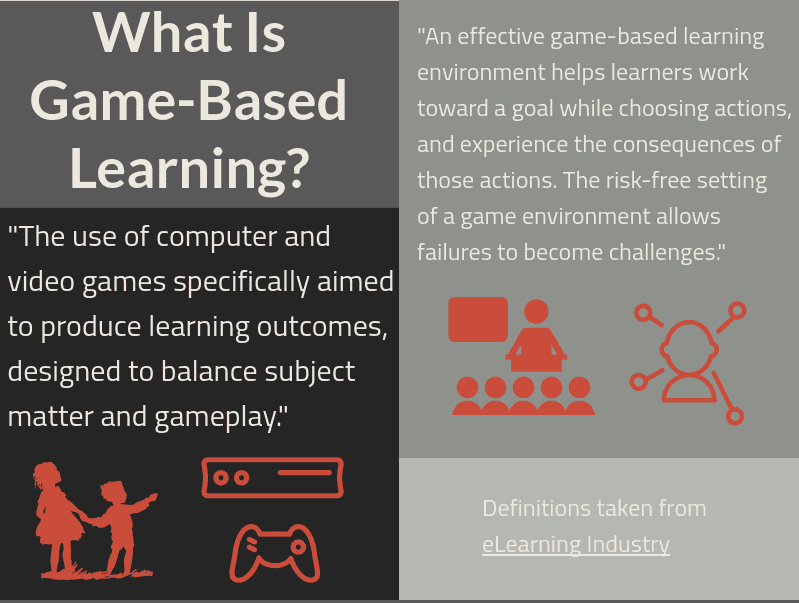
Game-based learning grows in popularity with each passing year. With an increasingly digital society, more and more teachers look for new ways to engage their technologically-minded students. Games provide a method for students to connect with their learning materials. Also, they offer a safe space for students to fail and learn from failure.
However, not all game-based learning experiences work for everyone. The definitions above help in understanding the basic concept, but an effective experience comes from a capable teacher. Rather than replacing teachers, educational games partner with good teachers to create an awesome lesson both fun and helpful. Games teach not only facts but skills. By virtue of being digital, games bring opportunities to have unique experiences that would be hard to replicate in physical form. Additionally, games provide a framework for assessing student performance in applying lessons. More diverse than straight tests, games gather impartial data on student performance that can be fed back to the teacher.
Bear in mind, different games work for different classes.
How Can I Use Game-Based Learning in the Classroom?
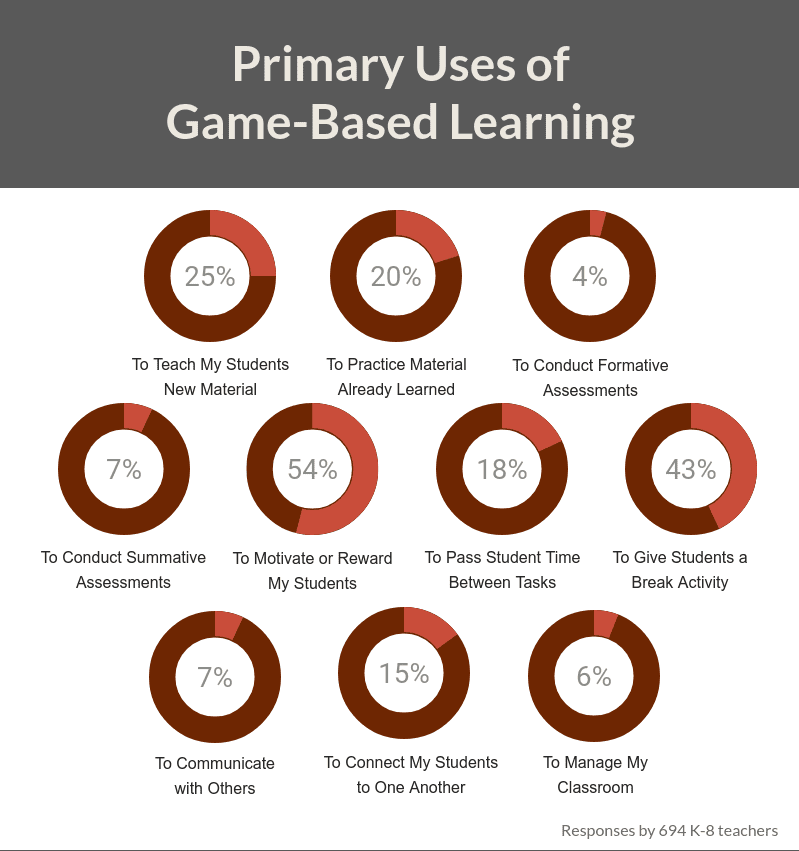
Flexible and varied, teachers use game-based learning in the classroom to achieve many goals. Games help teachers provide new material in an interesting way, conduct assessments, or motivate students to work harder. Clearly, the goal depends on the kind of class and the subject taught. By identifying the goal first, teachers tailor game choice towards these goals. That way, game-based learning offers the most benefit. Additionally, students enjoy it more when it feels purposeful in their education.
However, more importantly, games show success in meeting these educational goals.
What’s Good About Game-Based Learning?
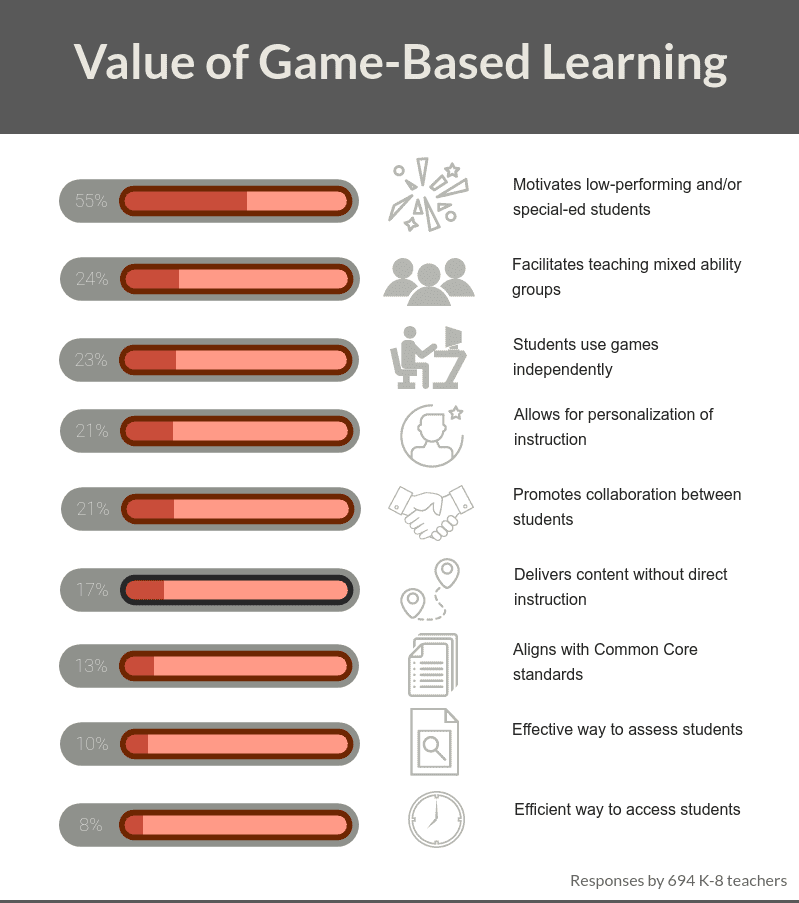
Game-based learning meets a variety of needs from teachers. More than half of teachers agree that game-based learning motivates low-performing and special education students. They get more involved in lessons and become more interested in learning. Read a teacher’s thoughts on how our Excavate! games gets her special-ed classroom interested in learning here. The review also touches on how game-based learning personalizes education. Other reasons cited above for using game-based learning include promotion of collaboration, independent learning, and the ability to deliver content from a distance.
Many games fall under national standards like Common Core. For example, our Excavate! games follow C3 standards for world history education. However, not every game works for standardized curriculum, so make sure the game works for your class.
What Do Other Teachers Say?
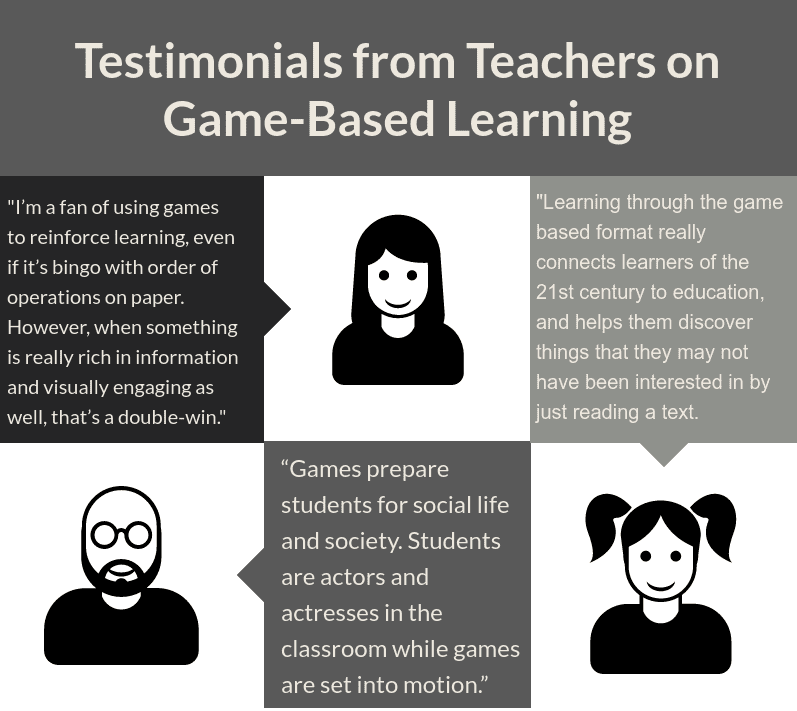
Many teachers welcome the tools into their classroom and find their students love it. Good educational learning developers provide frameworks for teachers to work with. For our Excavate! games and ExoTrex games, we offer free teacher’s guides and lesson plans to help use the games with students. Always make sure that you feel comfortable with a game before giving it to students. Game-based learning in the classroom starts with a good teacher. No matter how good the game, it needs a teacher to guide students through learning.
How to Find Out More?
The statistics quoted in this blog come from Level Up Learning, a national survey about teaching with games in K-8. We highly recommend giving the whole report a read. Also, we offer this report on digital game-based learning in secondary education as another sources of information. Just a quick search on the web brings up tons of information and options for learning more about educational games.

